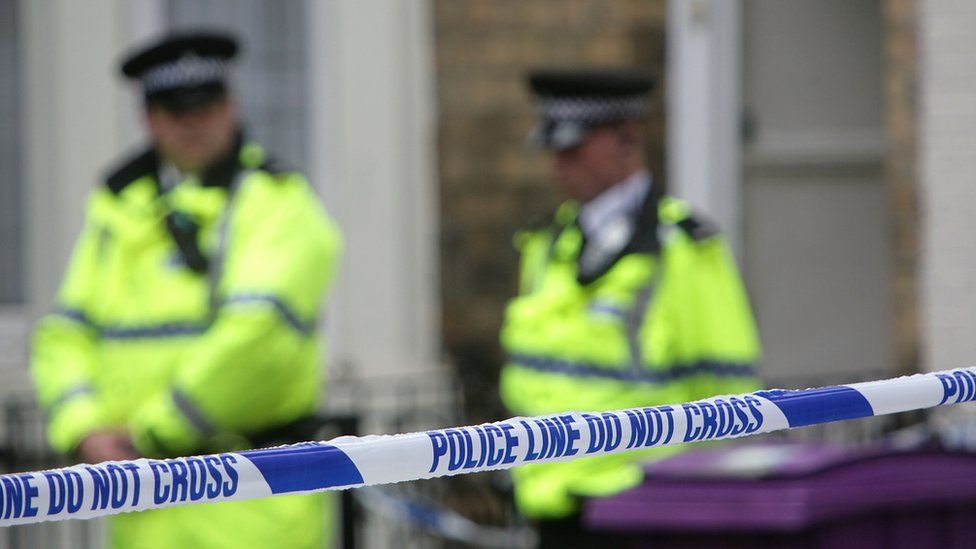Reality Check: What has happened to police numbers?
-
Published

In a speech as Labour resumed its election campaign, Jeremy Corbyn said he would "reverse the cuts" to police.
The latest figures show that between September 2010 and September 2016 the number of police officers in English and Welsh forces fell by 18,991, or 13%, according to the Home Office.
As of March 2016, there were 5,639 authorised firearms officers in England and Wales, down from 6,976 in March 2010. The National Police Chiefs' Council (NPCC) says an additional 640 firearms officers have been recruited in the last year and plans are in place to bring the number of armed police back up to around 7,000 by next year. This is only being partly funded by government. Forces must find some of the cash themselves.
Numbers of special constables and police community support officers (PCSOs) who patrol the streets have fallen by 7% and 11% respectively in the past year alone.
These figures are for England and Wales only, because policing in Scotland and Northern Ireland is devolved.
In Scotland, police numbers have risen more or less continuously for the past 30 years while in Northern Ireland there has been a smaller decrease since 2010 than in England and Wales.
Overall police budgets, excluding counter-terrorism grants, fell by 20% between 2010 and 2015. Since 2015, the overall policing budget has been protected in real terms, but not every force will benefit.
But over the same period, the ring-fenced counter-terrorism grant has been rising in line with inflation.
The National Police Chiefs' Council does not disclose counter-terrorism police officer numbers.
In light of the Manchester attack, which left 22 people dead, questions have been asked about whether the police have the resources to tackle the threat from terrorism.
Home Secretary Amber Rudd said on the BBC's Question Time programme: "I have asked the head of counter-terrorism whether this is about resources. It is not. We must not imply that this terrorist activity may not have taken place if there had been more policing."
There has been a large increase in counter-terrorism spending since a specific grant was introduced in 2001-02.
How this grant is shared out across police forces has not been made public in recent years for security reasons but the Metropolitan Police force is the national lead on counter-terrorism and is likely to receive a significant share.
In Autumn 2015, the then Chancellor, George Osborne, promised to spend £3.4bn extra on counter-terrorism - an increase of 30% - over the following five years. This was to be allocated to several different agencies working on counter-terrorism, not just police forces.
Counter-terrorism policing operates as a network with bases across the UK and resources, including officers and other staff, can be allocated where the need is greatest.
Manifesto pledges
- The Conservative manifesto does not mention police numbers or funding but it says a Conservative government will continue to invest in counter-terrorism and cyber-crime prevention
- Labour says it will recruit 10,000 more police officers to work on community beats
- The Liberal Democrats say they will give an additional £300m a year to local police forces
- UKIP says it will fund 20,000 more police officers
-
-
Published26 May 2017
-